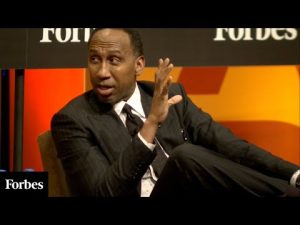In a significant political twist, President Trump’s diplomatic efforts are receiving unexpected recognition from both sides of the aisle following his recent achievements in the Middle East. Democrats who typically oppose him are now publicly acknowledging that Trump’s approach may have played a crucial role in fostering peace in the region. This surprising consensus arises after a series of military and diplomatic maneuvers that led to a breakthrough in negotiations, culminating in a potential hostage release and the possibility of a ceasefire in the ongoing conflict between Israel and Hamas.
One notable figure making waves is Pennsylvania Senator John Fetterman, a Democrat who has been vocal about supporting Trump’s diplomatic victory. He suggested, jokingly yet earnestly, that if this peace initiative is successful, Trump could be a contender for the Nobel Peace Prize. Imagine that—a former president recognized for achieving peace! Fetterman isn’t alone in this sentiment; House Minority Leader Hakeem Jeffries also expressed optimism about the potential resolution, signaling a rare moment of unity in Washington. It’s clear that the tide may be turning, as Democrats begin to step away from strict partisan lines in favor of rational discourse.
Interestingly, a revelation came from Representative Dan Goldman, a Democrat entwined in the impeachment of Trump, who conceded that President Biden failed to apply the necessary pressure on nations like Qatar and Turkey to help resolve the conflict. He acknowledged that Trump’s style of diplomacy had a unique potency, effectively pushing for solutions where Biden’s more cautious approach faltered. As they say, sometimes it takes a bull to enter a china shop, and Trump’s blunt tactics may have smashed through barriers that were previously unyielded.
Critics may scorn this acknowledgment from the Democratic side, but when even the mainstream media begins to give Trump credit, it is hard to ignore the implications. Notably, a piece in the Washington Post indicated that Trump accomplished feats in international diplomacy that his predecessors could not achieve in the same timeframe. This acknowledgment demonstrates that the narrative around Trump as solely a divisive figure is shifting. If this peace initiative holds, it could provide a substantial boost to Trump’s legacy, creating a curious juxtaposition as the political landscape reshuffles ahead of upcoming elections.
However, amidst this cautious optimism, one must wonder where the fervent anti-genocide activists have vanished to in the wake of potential peace talks. The uproar surrounding accusations of genocide seemed to fade into silence when a deal was presented that could stop the violence and save lives. This phenomenon begs the question: did their motives truly center around humanitarian concerns, or was there a more complex agenda at play? Observers of the political scene need to remain vigilant and scrutinize the motivations behind the rhetoric that fills the airwaves. After all, it’s easy to shout sentiment and outrage, but much harder to acknowledge when a peace deal could bring relief to millions suffering in conflict.
As the dust settles on this latest development, only time will tell if these newfound expressions of bipartisan support for Trump’s diplomatic skills will lead to lasting change. There’s a chance that this scenario may bring out more rational discussions among lawmakers—something the American public has been yearning for. Or perhaps they’ll remain ensconced in their entrenched divisions, all while being nudged into a brighter diplomatic era by the unexpected forces that are reshaping the Middle East. In any event, it’s clear that the narrative surrounding President Trump is far from over, and as the world watches, further developments may very well leave both his critics and supporters reeling.







